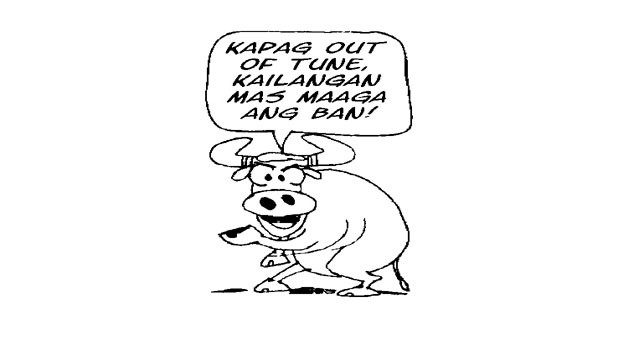DAVAO CITY—“And now, the end is near…”
For late-night karaoke sessions, that is, if presumptive President Rodrigo Duterte decides to impose his Davao governance model on the entire country.
During his campaign, the tough-talking Davao City mayor repeatedly hoisted Davao City as Exhibit A in wooing voters, citing the strict discipline he had imposed to make the city safe and orderly.
Although Duterte has yet to publicly announce a 10 p.m. ban on karaoke singing, people have expressed apprehension about its possibility.
Already, some Duterte lieutenants have started talking about Davao ordinances that the presumptive President might adapt nationwide, among them the 9 p.m. curfew for minors and a 1 a.m. liquor ban.
In Davao City, loud videoke singing in residential areas is allowed only up to 10 p.m. After that, neighbors can call their barangay officials or the police to report violators, or dial 911. Minutes after a complaint is lodged, the police comes calling at the offender’s home.
Commercial establishments and videoke bars are exempted from the order, although a 2 a.m. liquor ban in the city also affects videoke singing in these places. Customers are given until 1 a.m. to order liquor which they are expected to consume before the 2 a.m. ban.
Expectedly, the liquor ban was initially resisted by bar owners who feared reduced sales. Months later, however, the customers themselves moved up their drinking sessions earlier so they could beat the ban.
The liquor ban has also prompted Davaoeños to hold drinking sessions and parties in their homes, which are not covered by the 2 a.m. prohibition.
The ban, Duterte said, was meant to impose discipline on students and prevent them from frittering away their school allowances on liquor.
Another order being considered for nationwide implementation is the 9 p.m. curfew on minors. In Davao City, minors aged 17 and below are not allowed to roam the city starting at 9, without their parents or guardians. Doing so would mean being apprehended and turned over to the city social welfare and development office. Offenders are released only to their parents. Nico Alconaba, Inquirer Mindanao
